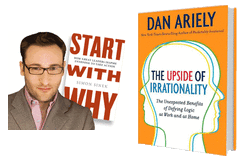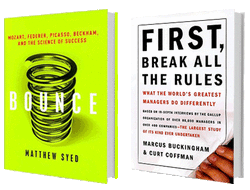| how_to_talk_about_the_christian_school_-_a_tract.docx |
|
I've posted today a document that I've been working on for some time. Last year I did a presentation at a Membership Meeting intended to help parents with thinking through how to respond to common arguments against the Christian school. That presentation is posted below and can be used by anyone to help with Christian school parents. I was asked following that meeting to provide the presentation for parents, but I decided that it would be more helpful to provide parents with a booklet containing detailed rebuttals that I spoke about in my presentation. Both of these are free to use, to print, and to disseminate. It is important to remember that the document and presentation are intended for Christian school parents and supporters, not necessarily for prospective Christian school parents.
2 Comments
 Recently, I had the opportunity to attend a conference, with many of my colleagues across Southern Ontario, where one of the keynote speakers was Simon Sinek of "Start with Why" fame. His was an inspiring address primarily centred on the physiology of incentives and performance. One aspect of his speech struck me because I had just been reading Ariely's "The Upside of Irrationality", most specifically his chapter entitled Paying More for Less: Why Big Bonuses Don't Always Work". First, let me discuss Sinek's argument briefly. Sinek spoke about the body's chemical responses to stimuli. In particular he spoke about the differing and paradoxical effects of cortisol and oxytocin. He explained that cortisol is the hormone produced in excessive amounts during stressful situations. Oxytocin, on the other hand, is called the Love Hormone and is responsible for feelings of trust, empathy, arousal, etc. Cortisol's positive aspect is that it produces what we call the Fight or Flight Syndrome which causes the body to produce readiness needed to flee dangerous situations. However, the body's response is the same during stressful situations where actual physical fight or flight is not needed. It also, apparently, inhibits oxytocin production which in turn limits the body's ability to trust, empathize, and love. Enter Ariely. Through a variety of lab experiments, Ariely makes the conclusion that "using money to motivate people can be a double-edged sword. For tasks that require cognitive ability low to moderate performance-based incentives can help. But when the incentive level is very high, it can command too much attention and thereby distract the person's mind with thoughts about the reward. This can create stress and ultimately reduce the level of performance." The two explanations seem to be correlated. If promises of high performance based incentives cause stress, then logic would tell us that cortisol release would permeate these situations. High cortisol levels inhibit oxytocin and make us less able to trust others and empathize with them. High stress also inhibits our ability to perform well. In a nutshell, the argument could be made that high performance based incentives kill performance and poison positive workplace climates. I wonder what this conclusion means for our classrooms. I wonder if our grading schematics and evaluation methods could be construed as high performance based incentives and could inadvertently be killing student performance and poisoning classroom atmosphere. This is not a profound conclusion for those of us who have thought seriously about our student evaluation methods. However, I think that the arguments presented by these two authors may provide new evidence for those of us who have concern about the demotivating aspects of traditional methods of evaluations. Of course, there is a big difference (perhaps) between monetary incentive and the grade motivators that we dole out. However, I wonder if the two are more alike for than we think considering the high stakes of achieving good grades in our society. Ariely, Dan. The upside of irrationality: the unexpected benefits of defying logic at work and at home. New York: Harper, 2010. Sinek, Simon. Start with why: how great leaders inspire everyone to take action. New York: Portfolio, 2009.  If you're anything like me, you grew up with a conception (or misconception) of what exactly creates talent. Much of my early belief about talent centred on the idea that there were specific individuals who were granted a God-given gift in a specialized act. Evidence of this belief manifested itself especially well in athletes like Michael Jordan, Donovan Bailey, and my own personal favourite Tiger Woods. These athletes all supposedly had this certain je ne sais quoi that other normal people just did not have. I remember hearing a sermon when I was in university where the minister spoke about the futility of trying to hone gifts outside of our God-given talents. What I most remember, though, was the opposition that this ignited in the non-Christian acquaintance that I spoke with about the sermon. She couldn't believe someone would question the supposed fact that, as humans, we can do anything we put our mind to. During my university years, I was given one other piece of evidence that would concretize the 'God-given' talent theory. It was in Kenisiology 101 where I first heard of fast-twitch and slow-twitch muscles; some people, it turns out, would never be Olympian 100m champions no matter how hard they tried. Two books recently piqued my interest about talent. One is a management manual, the other a sort of talent-myth exposé. In Buckingham's "First, Break all the Rules", the author argues that for employees to be successful in the workplace, and ultimately for managers to succeed, it must be recognized that there are roles that fit an employees 'filter' and those that don't. He defines talent as "a recurring pattern of thought, feeling, or behaviour that can be productively applied". When it comes to excellence, he claims that "the key to excellent performance is finding the match between your talents and your role", and further that "excellence is impossible without talent". Here he seems to be echoing my early belief that there are innate talents, or at least innate 'filters' that provoke us to certain actions over others. Because they are innately interesting and enjoyable for us to act on, we will flourish by honing them. Syed, in "Bounce" chooses a different argument. He claims that it is ultimately nurture and not nature that causes certain individuals to succeed in specific acts where others do not. Coining the "Myth of Meritocracy", he states that "practically every man or woman who triumphs against the odds is, on closer inspection, a beneficiary of unusual circumstances", and that "it is practice, not talent that ultimately matters". What makes Syed's argument so convincing is story after story about how exceptional people became just that. In all cases, these exceptional people had received innumerable circumstances to practice and hone a certain skill which the majority of people would never have had. Those who have read Gladwell's "Outliers" will be familiar with a similar argument in the 10,000 hours rule of practice. It seems to me that both arguments have merit. However, I know from having numerous conversations with many different people over the last few months, that this is a very contentious issue. And rightly so - we all have a view of how we came to be who we are with what talents we believe we have, and a view of how other people have come to be who they are with the talents they exhibit. The issue to me lies in the fact that our philosophical stance here will effect how we treat other people. For example, in a classroom our belief about talent and how students develop talent will effect how we view the student and what pedagogical instruments we employ. Similarly as leaders, the stance that we take about talent will affect how we help (or don't help) our employees and colleagues develop. My belief hasn't changed that God has created us uniquely and gifts us uniquely. What has changed for me is my understanding of whether or not these gifts are static. Perhaps, depending on the opportunities our parents gave, the methods our teachers have used to teach, and the manner in which our employer regards us all have significant bearing on our formation. Perhaps very different talents may have blossomed through different manifestations of the above scenarios. Really, it's a hypothetical question. However, how we as teachers and leaders serve directly effects those who we serve. Buckingham, Marcus, and Curt Coffman.First, break all the rules: what the world's greatest managers do differently. New York, NY.: Simon & Schuster, 1999. Gladwell, Malcolm. Outliers: the story of success. New York: Little, Brown and Co., 2008. Syed, Matthew. Bounce: Mozart, Federer, Picasso, Beckham, and the Science of Success. New York: Harper, 2010. I had the opportunity to watch this beautiful film on the weekend. I'd never heard of it before doing some rummaging through the dearth of information on rottentomatoes. It's amazing what you find when you dig below the surface of mainstream monotony.
I'm not going to give a review here, there are many sites that can do that justice better than I. However, I wanted to share a piece of a conversation that Monsieur Lahzar has with one of his colleagues at the school in which he just started teaching. In fact, as we find out eventually in the film, he hasn't actually taught before. The internal struggle that he has is one that I think every educator has had at some point in their careers; I call it the 'Just Sowing the Seed" struggle. This is a struggle that exists because, no matter what consultants and pedagogues tell us, there's no way to measure the meaningful progress that we're making with students. How many of us have had a child leave our classroom at the end of a year where we can't discern a noticeable difference in their lives? Monsieur Lahzar has this struggle as he works through his pedagogy. He walks into a neighbouring classroom to see that it doesn't 'look like a hospital' as his does. Later as he's having a drink with this colleague, the following dialogue ensues arising from his frustration and lack of confidence: M. Lahzar: "And it's my fault because I've forgotten to put some colour in their lives."...."I feel guilty for having abandoned them". Colleague: "Even the ones we're not able to reach we don't abandon." We find out that Monsieur Lahzar's comment may arise as an allusion to a life experience of his, but the response by his colleague is meaningful. Even the ones we're not able to reach we don't abandon. I've often been sitting with a group of teachers where we've felt equally discouraged and we've had to admit that we just have to 'sow the seed'. Teaching is one of those jobs that is thankless. Sure, we get the gift cards at Christmas for Chapters and Tim Hortons (Starbucks if we're lucky), but we rarely see the product of our labour. We have to submit that our work is a work of scaffolding: we do the work we can and we have faith that God will continue our work when our students have moved on. Only if we stay in our craft for long enough do we have the opportunity to have a student who we've taught come and say "thank you", and even then only if we're the lucky few. For now, we'll have to take solace in the faith that God goes before us and with our students. Monsieur Lazhar. Dir. Philippe Falardeau. Perf. Fellag, Sophie Nelisse, Emilien Neron. Music Box Films, 2012. |
AuthorI am an educator and a Archives
October 2016
Categories
All
|

 RSS Feed
RSS Feed
